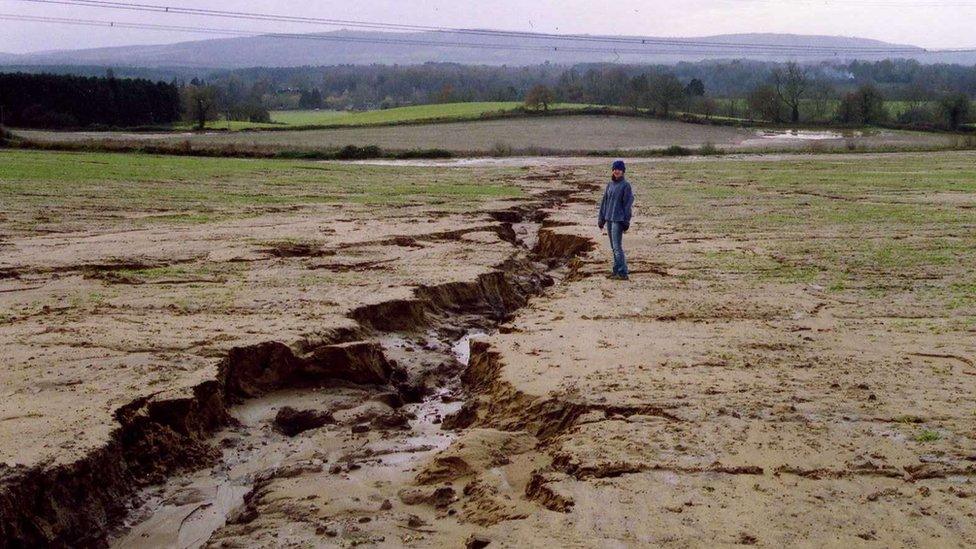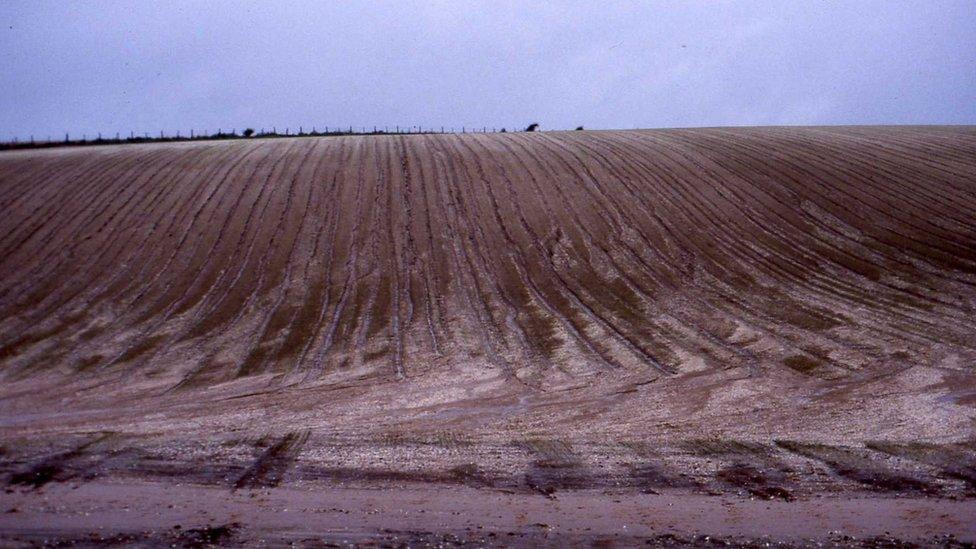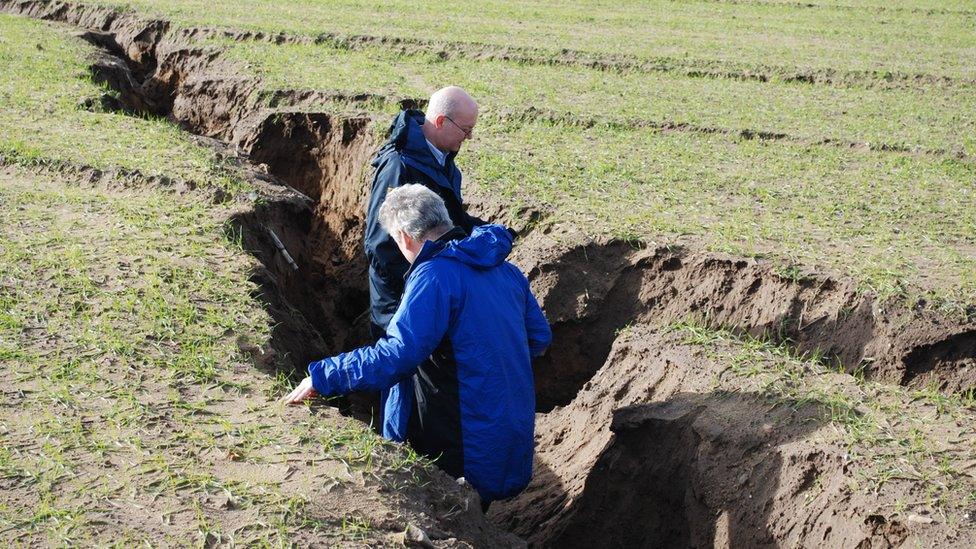MPs sound alarm on neglected soils
- Published

A large gully opens up in a potato field, post-harvest
Ministers are failing to protect Britain's soils on farmland and in cities, MPs say.
The Commons Environmental Audit Committee warns that tracts of polluted soil are a potential health hazard in many towns because the government has stopped grants to decontaminate them.
And agricultural carbon emissions are said to be growing because careless farming allows soil to blow away.
The government said it was protecting soils, but would review the new report.
The committee says soil is a Cinderella subject - little mentioned but vital for food and flood prevention.
Soil also stores carbon in the form of organic matter - but if soil is handled badly, this carbon can escape to the air, contributing to climate change.
Climate connection
The MPs say to meet the UK's promises on the climate, the government needs a clear plan for protecting agricultural soil.
They complain that the government relies on soil protection rules linked to farm subsidies.
These rules, they warn, are weak, loosely enforced, and focus on preventing further soil damage rather than encouraging restoration of damaged fields.
Labour's Mary Creagh, the committee chair, said: "Soil degradation could mean that some of our most productive agricultural land becomes unprofitable within a generation.
"Every tonne of carbon we can retain in soil will help us meet our carbon budgets and slow climate change."
A government spokesman replied: "The health of our soils and our 25-year plan for action on the environment will set out a comprehensive, long-term vision to protect and enhance our natural environment for generations to come."

Maintaining soils properly retains their carbon, mitigating climate change
But other experts reinforced the committee's concerns.
Prof Phil Haygarth, from Lancaster University, said: "Soils are arguably the most complex systems on Earth but are intimately linked to human security and the integrity of the wider environment.
"Any lack of recognition of this is just short-sighted and will inevitably lead to environmental and societal problems in the future."
The report says the UK's arable soils have seen a worrying decline in carbon levels since 1978.
The other focus of the report is on contaminated land. There was previously a limited national pot of cash to help local councils clean up polluted land, but this has now been closed completely.
The government says planning policy sets a clear framework for the clean-up of land to be developed.
But Ms Creagh countered: "Relying on the planning system to clean up contaminated land may be fine in areas with high land values, but it means that contamination in poorer areas will go untreated. Ministers must rethink their decision to phase out clean-up grants."
There were potentially now 300,000 contaminated sites in the UK, she added.

MPs say the government has no policies in place to deliver on its promise to protect soils
Ms Creagh said: "Our industrial heritage means that hundreds of thousands of sites across the country are contaminated by chemicals, heavy metals, tar, asbestos and landfill.
"Often materials were disposed of on site without the environmental safety regulations we take for granted today.
"Defra's complacent decision to withdraw contaminated land grants presents a real danger that contaminated sites are being left unidentified with consequential public health impacts."
The government has declared an objective of safeguarding all soils by 2030, but the MPs say there are no policies in place to deliver that promise.
National Farmers Union spokesman Mark Pope told BBC News that it endorsed flexible and voluntary approaches to conserving soil. "Soil characteristics vary significantly in the UK, meaning there is no single method or panacea solution available to improve soil health," he said.